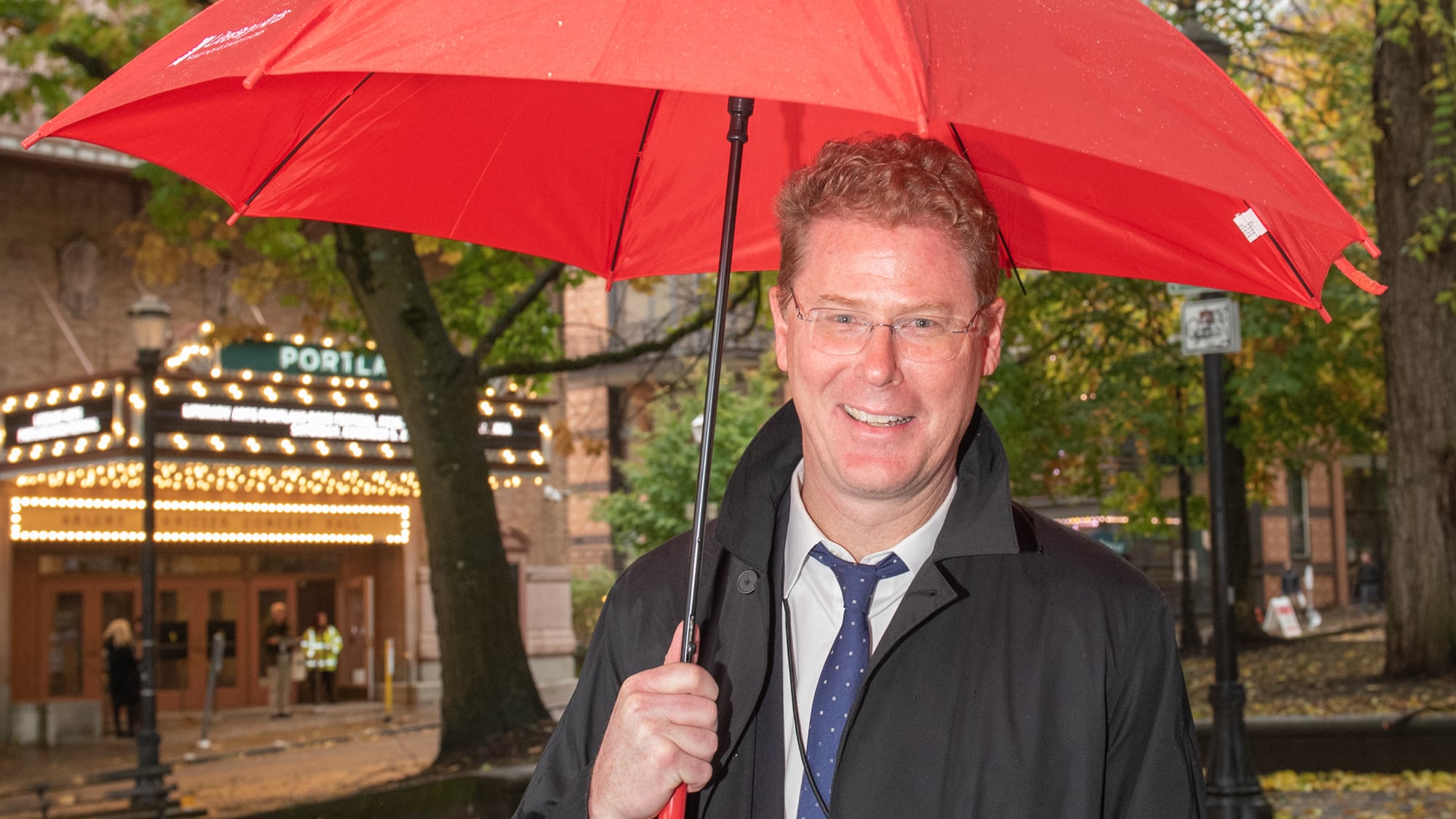Andrew Proctor, Literary Arts’ executive director, is trying to remember a quote. Something from someone named Helen, he tells me over the phone. It turns out to be by culture writer Anne Helen Peterson, and it goes, “Communities without art—in all its various, ridiculous, beautiful forms—are communities that are dying.”
It’s apt to Proctor’s ethos on where arts culture currently stands in our city, our state: the flatlining of the Oregon Arts Commission’s funds for arts organizations over the past nearly two decades, the outrageous struggle for artists and institutions of all sizes to survive as the National Endowment for the Arts gets cut to pieces. The damage is serious, somewhat grim—but nothing’s a lost cause, yet.
“It’s not a sum total, it’s a signal,” Proctor says, among many other things, on how we can unstick ourselves from a murky past and move forward. (This conversation has been lightly edited for brevity and clarity.)
WW: Describe the current state of the arts in Portland in three words.
Andrew Proctor: I’d say fragile, vibrant and unknown.
Now, give us a longer take.
There’s a lot of very necessary reactions to urgent things—but there are things that are urgent and things that are important. If you only ever solve urgent problems, you haven’t built for the future. If we don’t decide as a group that we want to have an arts and culture community, then we’re not going to have one. That’s a choice. We also need to have a conversation about what kind of arts and culture community we want to have. My position is, we need a great variety—type, scale, size.
We shouldn’t take any of this stuff for granted. Institutions that appear to be big and strong and fine—none of them are that secure. The CDC looked pretty solid a few years ago, to grab a headline. We’re learning that these institutions need our care if they’ll persist.
In your recent op-ed for The Oregonian, you mention the George Floyd protests, and what happened after, as emblematic of the city’s confusion. Can you elaborate on how that parallels our community’s relationship to the arts?
I’m not saying something electrifyingly original when I say this city has an identity crisis. I’m not blaming anyone for anything, but that confusion that lasted so long does seem to me emblematic of, we don’t have a clear idea of who we are as a place. It’s dangerous to say things were great in 2015 so let’s reproduce that—that’s a doomed strategy.
We’ve come through an enormously traumatic time. I don’t think we’re talking about it enough as Americans, or Portlanders. Like, a million people died? When was the last time a million people died? You think we should put a monument up about it? Any trauma teacher will tell you if you don’t process, you’re going to be stuck in that cycle. I’m not delivering any lighting bolts here. We’re not dealing and we’re stuck. To me, the arts are a way of processing and discovering who we are. Which doesn’t mean you have to become Proust; you just need to read a book and talk about it with your neighbor, or go to the arts museum. A new branding campaign for the city isn’t going to solve our problems.
We need a medium to sort this, and it’s not going to be Twitter. We’re going to have to find places, large and small, that require us to be face to face. As a person who dedicated their professional career to the arts, I happen to think the arts are important. The underfunding threatens the community’s whole well-being. Defunding the NEA is not the answer. I’m not beating up on Portland, this is a problem in a lot of cities. I want to take a slightly macro view, I feel like I have some integrity in this conversation, it’s not like I’m sitting on the sidelines throwing rocks at people—[Literary Arts] raised $23 million for [the new] building, and to save [Ursula K. Le Guin’s] house, we’re inviting people in by the hundreds for just this purpose—that gives me an opportunity to say something. The positionality does matter because there’s a lot of bitching going on.
Funding remains a huge issue, but I want to know your thoughts on what we can do without it.
Who’s us?
Everyone—whether that’s providers, artists or audiences.
I say this with great respect, but sometimes this question annoys me. I can’t put [funding] aside and I’m not going to put it aside. You’re an artist and a journalist, and I have staff who are artists and they have to be paid and taken care of, and if they’re not they’re going to leave. [Artists are] radically underpaid, and it’s borderline unethical and immoral, and we can’t push it away. The idea of the starving artist is totally glamorized and is completely unacceptable. I understand the question has some other dimension, which is, “I’m a regular person with a regular salary and I’m not going to change the trajectory of the art museum’s fundraising campaign.” You don’t have to. If you care about these things, you’re going to have to participate in them. And if it’s too much, then don’t, but then you don’t care, and that’s the answer.
For me to go out and raise money, the primary way I make the case is a relevance case, and that comes from attendance. If you’re not there, I can’t count you. Saying you care about it is a far less effective thing than showing up.
You want great art, it costs. Campaigns depend on small donors—big donors too, and we get a little snarky about that. My big donors, they’re thoughtful, they’re not smoking cigars in back rooms—all this caricature shit, I’m getting real tired of it. My largest donor, during COVID, when we were in the office boarded up, used to bring me lunch. She treats me like her son.
What arts organization, or movement, or individual do you see making inroads toward a more sustainable future for arts and culture here in Portland?
I have an obvious, difficult answer, which seems to be a theme of our conversation [laughs].
[Portland Art Museum director] Brian Ferriso just announced his departure. He’s been here 20 years, and he pulled the museum out of a debt ditch, and has done a lot of incredible work for a lot of artists, and eventually took the museum to the Biennale, and then built a $111 million extension to the museum. He’s building an institution that’s durable and sustainable and has a relationship to community that’s not remote.
I’m not saying it’s perfect, but he’s been an important partner to me and [Literary Arts]. When Wordstock was basically bankrupt and we took it on, I called Brian and asked, “Would you give me the art museum? And, by the way, I have no money.” His answer was, “I’ll call you back.” I worked in New York for 10 years, and there’s no circumstances where I call the [Metropolitan Museum of Art] and I even get the director on the phone.
Rachel Smolkin, the new head of Oregon Public Broadcasting, what she’s saying to the community is important, about journalism and arts and arts coverage. [OPB is] a super-equitable vehicle. Like Willamette Week, it is free.
We’re in a big leadership change, to say the obvious and difficult thing. Your question is a little tricky—there’s lots of people doing lots. I don’t think there’s a lack of energy, but we have some big structural problems.
It’s a privilege to speak about these things, I don’t take it lightly.

